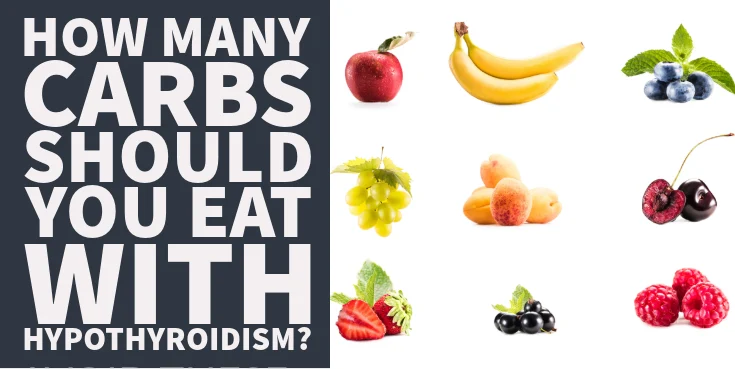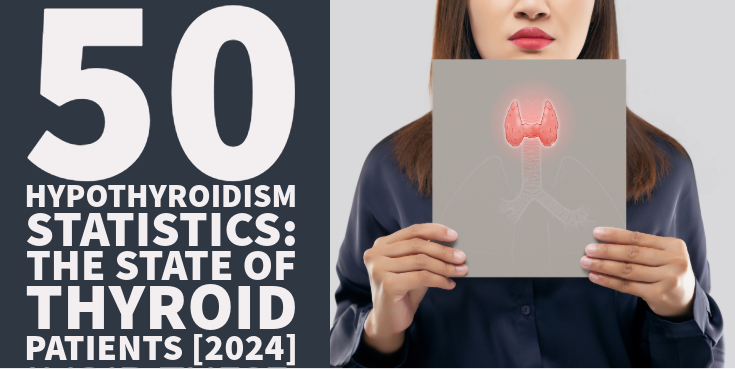Think you’re doing your thyroid a favor by avoiding vegetables?
Think again.
Vegetables are some of the healthiest foods on the planet and they should not be avoided if you have hypothyroidism, despite what some experts may say.
Having said that, there is some truth to the idea that vegetables have the potential to make your thyroid worse but only if they are used incorrectly.
Is this really a problem, though?
Not for you, because today you’re going to learn more about why vegetables are considered a thyroid superfood, how to make sure you consume them correctly, why increasing your intake of iodine is important if you increase your intake of vegetables, and much more.
Let’s jump in:
DOWNLOAD FREE RESOURCES
Foods to Avoid if you Have Thyroid Problems:
I’ve found that these 10 foods cause the most problems for thyroid patients. Learn which foods you should avoid if you have thyroid disease of any type.
The Complete List of Thyroid Lab tests:
The list includes optimal ranges, normal ranges, and the complete list of tests you need to diagnose and manage thyroid disease correctly!
What You Need to Know About Goitrogens
In order to understand why some people think vegetables are harmful to your thyroid you have to understand the term goitrogen.
What are goitrogens?
In the most simple sense, they are compounds that block your thyroid’s ability to use iodine. That’s pretty much it.
When talking about vegetables, we are primarily concerned with ac compounds called glucosinolates which is a bioactive compound found primarily in cruciferous vegetables (1).
These glucosinolates are a problem because they are broken down by the body into another compound called thiocyanates and these thiocyanates compete with iodine when creating thyroid hormones (2).
In other words, the more you eat vegetables, the more of these compounds will exist in your body and the higher likelihood they will disrupt your body’s ability to make thyroid hormones.
There’s more to it, which I will discuss in a minute, but there’s one other thing you need to know about goitrogens:
They aren’t just found in plants which can sometimes be a little bit confusing for thyroid patients.
Goitrogens is a broad word used to describe anything that causes enlargement of the thyroid gland (i.e. goiter), but it’s not limited to just foods.
A lot of different things can act as goitrogens including chemicals, prescription medications, other foods (like soy and millet), and even some supplements.
This is a small but important point to understand because most people assume goitrogens are only found in foods which is not the case.
But for the purposes of this article, we are focusing primarily on the goitrogens found in vegetables.
How Vegetables Can Cause Thyroid Problems
Why are people so concerned about these goitrogens?
Because your thyroid is the biggest user of iodine in the entire body (3), by a lot.
It requires a huge amount of iodine to create all of the thyroid hormones that your body needs including T4, T3, T2, and T1.
Each of these thyroid hormones requires a different amount of iodine compounds in order to function (4 iodines for T4, 3 iodines for T3, and so on).
And if your thyroid gland can’t bring that iodine in to create thyroid hormone, you’ll end up in a hypothyroid or low thyroid state.

If you are someone who already has a healthy and normal thyroid gland, this isn’t a problem at all, but if you are someone who already has hypothyroidism (a low thyroid) then you can see how it might make your thyroid worse.
And this right here is the reason that you’ll find vegetables on the ‘do not eat’ list for many people who discuss diets relating to the thyroid.
But, as you might have guessed, there’s more to the story.
Are Goitrogens In Vegetables Really A Problem?
If you are following the advice of conventional and standard doctors then maybe.
But if you are following the advice that I frequently recommend then it’s not an issue at all.
Let me explain:
Dietary goitrogens found in vegetables compete with iodine entry into the thyroid gland but they can easily be outcompeted by simply consuming more iodine.
If there’s more iodine present in your body then the iodine will win the competition war.
These goitrogens only really become a problem if you are already in a low iodine state or if you are actively avoiding iodine which is the standard advice given to many hypothyroid patients.
In the setting of low iodine, a normal intake of dietary goitrogens may start to make a difference and may actually decrease thyroid hormone production.
So the standard advice given by many doctors to avoid both vegetables and iodine may make logical sense, but, from a practical standpoint, it’s terrible advice.
Which do you think makes more sense:
To avoid both iodine and vegetables and miss out on the incredible health benefits provided by vegetables?
Or to consume both iodine (in a safe amount) and vegetables so you can reap these health benefits (4) and maybe, just maybe, provide the inputs necessary to naturally heal your thyroid and make yourself less reliant upon thyroid medication?
If you’re like most people then I’m guessing you will probably choose the latter, especially given the fact that daily doses of iodine have been shown to be both safe and effective at improving thyroid health.
Psst, if you are using my thyroid-support supplements then they already contain this healthy level of iodine which means you don’t have anything to worry about.
How To Reduce Goitrogens in Veggies by 80% & Negate Their Negative Effects
Just for a minute, let’s assume that you are someone who is concerned about iodine and wants to avoid it at all costs.
If you fit into this category then you probably haven’t read my article on why iodine is perfectly safe to use, but let’s just go with this idea for a minute.
Does this mean that you should avoid vegetables?
Nope, because there are still things you can do to reduce their goitrogen content!
One study showed the following (5):
- Steaming cabbage reduces its goitrogen content by 57-87%
- Blanching it reduced its goitrogen content by 61-81%
- And stir-frying reduced it by 58-84%
All three of these methods are roughly equivalent in terms of their ability to degrade goitrogen content and can be obtained with as little as 4 minutes of cooking at around 80 degrees Celsius or 176 degrees Fahrenheit.
In other words, as long as you aren’t eating your veggies raw, and you are cooking them using virtually any method that involves heat, you are dramatically reducing their goitrogen content and, thus, reducing their negative impact on your thyroid.
So, no, iodine intake be darned, you can still eat your vegetables.
The Best Vegetables for Hypothyroidism
Ready to supercharge your thyroid (and your health)? Here’s a quick list of what I think are the best vegetables for patients with hypothyroidism:
- Broccoli – Broccoli contains sulforaphane (6), indole 3 carbinol (7), and polyphenols which act to prevent oxidative damage, balance estrogen, and reduce inflammation.
- Cauliflower – Cauliflower provides similar benefits as broccoli and includes thyroid-supporting nutrients like vitamin A, thiamine, riboflavin, and iron.
- Garlic – Garlic is rich in allicin which supports the immune system (8) and may help prevent thyroid gland inflammation and damage.
- Kale – Provides many of the same benefits as broccoli and cauliflower.
- Potatoes (sweet and regular) – Potatoes contain prebiotics in the form of resistant starch (9) which helps improve gut health.
- Shitake mushrooms – These are considered one of the healthiest mushrooms available because of their immune-balancing effects (10).
- Spinach – A simple and relatively tasteless vegetable that can go in just about anything.
Try to get at least 4 servings of vegetables each day which is right around 2 cups worth.
I think the easiest way to get half is with a morning smoothie that contains 2 cups of kale, spinach, or chard, and the other 2 cups you can get at dinner to go along with lean protein like fish, chicken, or turkey.
Combine this with a safe and healthy dose of iodine at around 200 to 300 mcg per day and come back here and report how you are feeling in a few months.
I think you’ll be pleasantly surprised.
Scientific References
#1. ncbi.nlm.nih.gov/pmc/articles/PMC4985713/
#2. pubmed.ncbi.nlm.nih.gov/14757960/
#3. ods.od.nih.gov/factsheets/Iodine-HealthProfessional/
#4. ncbi.nlm.nih.gov/pmc/articles/PMC7143647/
#5. ncbi.nlm.nih.gov/pmc/articles/PMC10573036/
#6. ncbi.nlm.nih.gov/pmc/articles/PMC6804255/
#7. ncbi.nlm.nih.gov/pmc/articles/PMC5989150/
#8. ncbi.nlm.nih.gov/pmc/articles/PMC4417560/
#9. ncbi.nlm.nih.gov/pmc/articles/PMC3823506/
#10. pubmed.ncbi.nlm.nih.gov/25866155/








